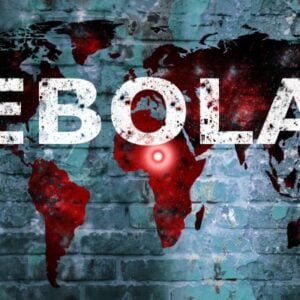The International Federation of Red Cross and Red Crescent Societies (IFRC) has launched an emergency appeal for 20 million Swiss francs to contain the first Ebola outbreak in the Democratic Republic of Congo’s (DRC) Kasai province since 2008. The goal is to prevent further spread and address a rapidly worsening humanitarian crisis.
Ariel Kestens, IFRC Head of Delegation in Kinshasa, highlighted the severity of the situation: “Health facilities are overwhelmed, essential supplies are lacking, and the area is without power. Families are deeply anxious, especially as the virus disproportionately affects vulnerable people. Immediate action is critical—every hour counts.”
As of 18 September 2025, the DRC Ministry of Health reports 37 confirmed cases and 19 deaths, including four health workers. The outbreak is concentrated in the Bulape and Mweka health zones, where access from Kinshasa can take up to three days by road. Local health facilities are overstretched, with the main isolation centre already exceeding capacity at 119%.
Volunteers are providing support to families in the affected zones, but essential resources such as clean water, protective equipment, and medical supplies are nearly depleted. The DRC is simultaneously facing outbreaks of Mpox, cholera, and measles amid economic and political challenges, further straining response capacities. Without urgent intervention, Ebola could rapidly spread across these fragile communities.
The outbreak disproportionately affects women, children, and vulnerable groups. Over 44,000 children have been forced out of school due to closures, while traditional funerary practices, stigma, and overlapping crises heighten the risk of disease spread, displacement, and gender-based violence. Healthcare workers are particularly at risk, with at least five infected and four reported deaths, although frontline vaccinations have begun.
Gregoire Mateso, President of the DRC Red Cross, emphasized the urgency: “Protecting health workers means protecting communities. The DRC needs immediate support, especially in remote and under-resourced areas. This is not just about Kasai – it’s about preventing another regional health crisis.”
The DRC Red Cross has already carried out safe and dignified burials, disseminated information through faith leaders and door-to-door visits, and provided awareness-raising sessions to over 7,000 people. The IFRC’s emergency appeal will scale up these efforts, aiming to reach 965,000 people with critical support, including safe burials, health worker protection, risk communication, hygiene promotion, community engagement, surveillance, and psychosocial support.
The IFRC and DRC Red Cross are urging the international community to mobilize resources immediately to prevent the Ebola outbreak from escalating further.







